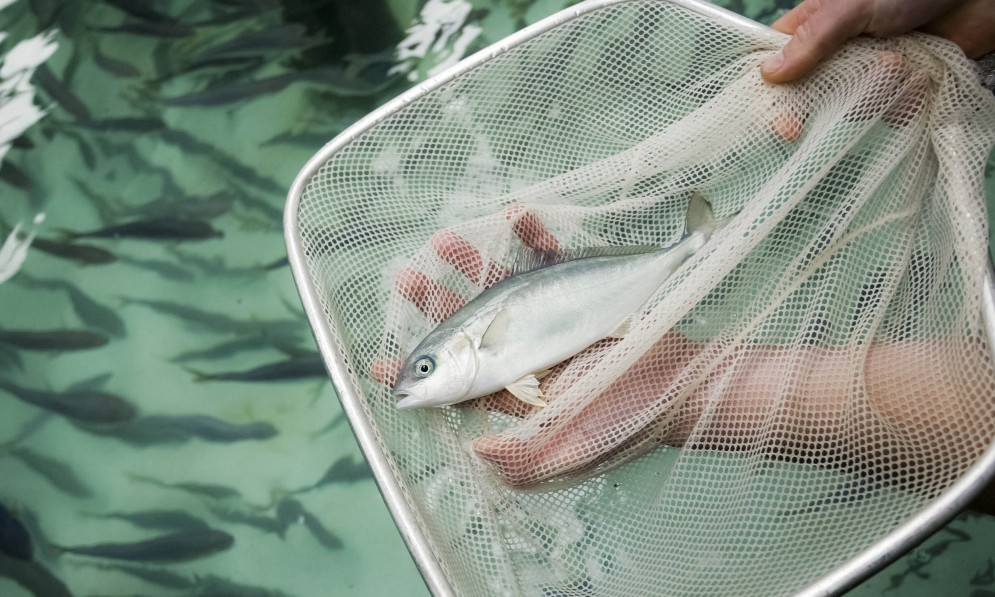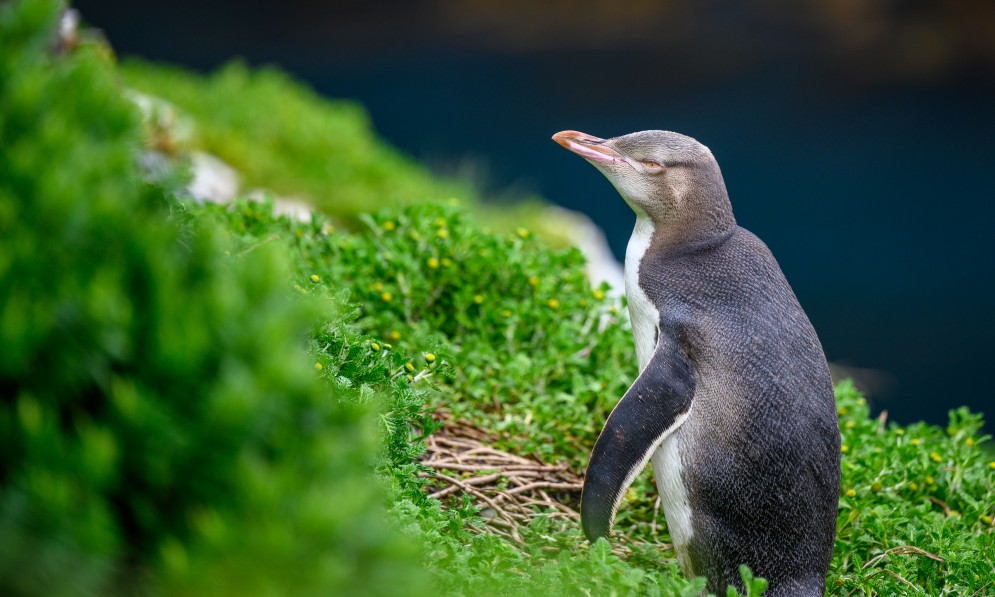The new coalition government will lead to the loss of more taonga species. Why can’t our decisionmakers see the wood for the trees? By Teall Crossen
Forest & Bird magazine
A version of this story was first published in the Autumn 2024 issue of Forest & Bird magazine.
⏎Nature is dying and the coalition government is set to hasten it along, undermining the wellbeing, prosperity, and lives of all of us.
Biodiversity underpins our wellbeing and livelihoods. Agriculture, forestry, fishing, and tourism all depend on a healthy natural environment.
An independent survey recently commissioned by Forest & Bird found that one in three New Zealanders sees the environment and conservation as one of the top causes that matter most to them.
Our connection to nature is part of how we identify as a country and as people. In te ao Māori, nature and people are connected through whakapapa and kaitiakitanga.
But successive governments have failed to keep te taiao nature safe, and much of our native fauna and flora is on the path to annihilation, with many species already locally extinct.
Things just got a whole lot worse with the new National-led coalition government busy rolling back environmental protections, potentially destroying decades of hard-fought gains by conservationists since the 1980s.
After last year’s general election, it became clear that decision-makers were actively planning for the demise of our precious birds, lizards, bats, and other native species.

Shane Jones
Resources Minister Shane Jones told Parliament last December: “We are going to extract the dividend from Mother Nature’s legacy on the DOC estate in those areas previously called stewardship land.”
The government wanted a “fast-track process where the authority rests with the politicians” for aquaculture, mining, energy, and infrastructure projects, added Jones, a New Zealand First MP.
This threatens to undermine other policies adopted by the last government, including Te Mana o te Taiao in 2020, a national strategy to address the biodiversity crisis, and the National Policy Statement for Indigenous Biodiversity, which contained clearer rules to protect significant terrestrial biodiversity.
It was finally issued in 2023 – more than two decades after a previous government warned biodiversity decline is Aotearoa’s most pervasive environmental issue.
Now it’s clear that the National-ACT-NZ First coalition government is planning to assist our precious native species further along the road towards extinction.
The Natural and Built Environment Act and the Spatial Planning Act were both repealed before Christmas as part of the government’s 100-day action plan.
These new resource management laws weren’t perfect, but they did have some good principles.
Developers, for example, couldn’t destroy habitat essential to the survival of nationally critically species.
The introduction of an environmental limit for indigenous biodiversity also provided a mechanism to better protect threatened species. These principles have now been lost with the repeal of the NBA laws.
Chris Bishop, the Minister for Resource Management Reform, is pushing ahead with permanent fast-track consenting legislation and his plans to replace the National Policy Statement for Freshwater Management.
Under this impending law, infrastructure and development projects approved by Ministers will go to an Expert Panel that can impose conditions but will have limited ability to decline a project. Without any meaningful statutory controls, further negative impacts on species are guaranteed.
Bishop gave stakeholders less than two weeks to provide feedback on significant legislation that will fundamentally weaken the protection of our natural environment.
In the coalition government’s third phase of reforms, the RMA is set to be replaced with legislation based on the “enjoyment of private property rights” rather than protecting the environment, providing for community wellbeing, the connection of iwi and hapū to te taiao, and ensuring new developments benefit everyone.
Existing protections for freshwater will be rewritten to better reflect the interests of “all water users”. This means more unsustainable farming, forestry, urban expansion, and mining will be allowed, untrammelled by meaningful environmental limits.
Yet the state of our freshwater is already grim, even under the current laws. Lakes and rivers are under pressure from pollution and water extraction, caused by the very activities the government wants to unleash.
Only 10% of indigenous wetlands remain – ecosystems that improve water quality, reduce floods, and are habitats for some of the most endangered plant species in Aotearoa.
We are heading down the path to fewer wetlands, dirtier rivers, and groundwater that isn’t safe to drink. It will also put further pressure on our freshwater species – almost 70% are already threatened or at risk.

Marine farms can damage the ocean environment. Image NIWA
Our marine species won’t fare well under the new government either. Here there weren’t any obvious laws to roll back, given the Marine Reserves Act is largely ineffective – it doesn’t allow protected areas for biodiversity purposes or enable meaningful participation by mana whenua in decision-making.
Creating marine protected areas needs new legislation, and that’s not part of the government’s plan. With the international community recently agreeing to protect 30% of the marine environment by 2030 and Aotearoa New Zealand only fully protecting a fraction, we will continue to remain laggards in the international fight to stop the ocean’s collapse.
To be fair, National supports the Hauraki Gulf Tīkapa Moana Marine Protection Bill, which means this much needed protection for the Gulf is likely to be enacted. But that’s about as good as it gets.
The government is enabling damage to the marine environment by proposing to extend existing consent durations for all 1200 marine farms around Aotearoa by an additional 25 years (added to existing consent terms) without any environmental assessments. Marine farms can cause serious harm to sea floor ecosystems, seabirds, and marine mammals.
Cameras on fishing boats are also in jeopardy as Minister Jones seeks to overhaul the regime. Further afield, he has stopped efforts to curtail our own fishing fleet from destructive bottom trawling in the South Pacific – backtracking on international agreements to protect vulnerable marine ecosystems.
Then there’s the funding cuts of at least 6.5% to the Department of Conservation. It seems unlikely the coalition government will adequately fund conservation to ensure species get the help they need to stay out of the danger zone.
Around 80% of native bird species in Aotearoa are threatened with extinction or at risk of becoming threatened.
While funding is going into species recovery programmes for charismatic species such as kākāpō and takahē, many non-charismatic species are now less likely to receive funding. A worrying 85% of our land reptiles, for example, are threatened or at risk of extinction.
Christopher Luxon supports Predator Free New Zealand, but eradicating introduced predators from all of Aotearoa will require significant investment. One study has estimated the cost at $24.6 billion.
With tax cuts promised, no concrete details on where the money will come from, alongside fiscal reductions across the public service, it seems safe to say that protecting wildlife from introduced predators won’t be a priority for the next Budget.
I would have thought that no government, across the political spectrum, would want to allow native species to go extinct on their watch, but the National, New Zealand First, and ACT coalition government has actively planned for it.
Teall Crossen is an environmental law and policy advisor working in Aotearoa and internationally on protecting nature and climate justice.
⏎

